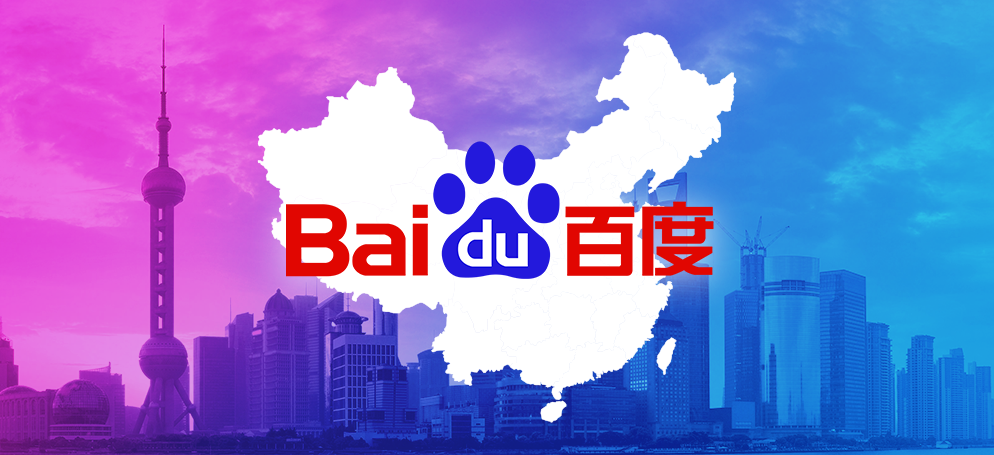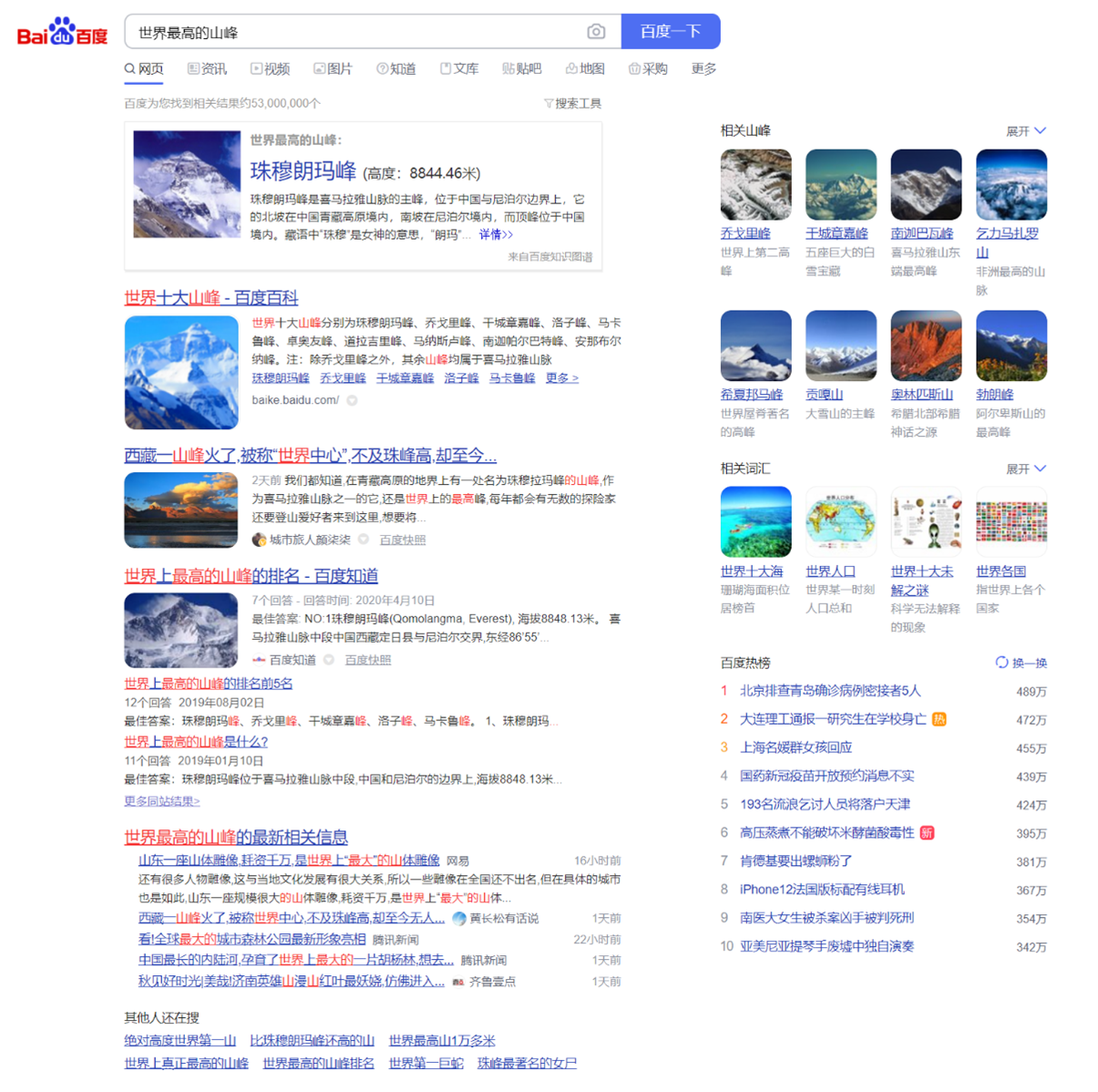
Baidu: Everything you need to know about China’s search engine
If you are planning on entering the Chinese market, then you need to be well-versed in China’s distinctive digital landscape. A key aspect of that is, of course, Baidu – China’s leading search engine. In this detailed overview, we tell you everything you need to know – read on to find out more.
Baidu at a glance
The word “Baidu” literally translates as “100’s of times”. It is taken from a poem called The Green Jade Table in the Lantern Festival written by Xin Qiji (1140-1207) and refers to a persistent search for the ideal. Now in its 20th year, Beijing-based Baidu is not just a search engine (even if it boasts 1 billion searches a day) but a variety of online portals for Chinese users. Baidu provides various services including its own map, encyclopaedia, forums and cloud storage services.
Recently, Baidu has signalled a motivation to expand outside of China and the ‘purer’ Chinese-speaking regions, including into the EU and the US. It has also invested heavily in Artificial Intelligence and Voice Recognition technologies (DuerOS), as well as an interesting segue into self-driving cars.
Baidu reigns supreme in China, partly because of its user-friendly search functionality and indexing capabilities, but also because of its allegiance to the Chinese Government. Indeed, on Baidu, you will find much conformity with restrictions put in place for citizens, making it a compliant search engine that comes with its own nuances. Baidu is notoriously known as the most censored and restricted search engine globally, alongside the infamous ‘Great Firewall of China’.
The Baidu SERP
The results shown on Baidu vary by intent and often result in significant changes to the appearance of the search results page. Some searches may be more text heavy, whilst others more image and video focused, depending on the search query. Most Baidu results are much more image-heavy than are typically seen on Google. The format of the SERP dynamically changes based upon the perceived intent of the query, leading to some SERPs being much more image-dominant than others.

Baidu is infamous for its favouritism towards itself. Baidu favours its own proprietary sites over the sites you would expect to find in other search engines, particularly Baike (its encyclopaedia). With the multitude of platforms that fall under the Baidu umbrella, there is typically a Baidu site that is primed to supersede your existing pages. For those that are not covered by Baidu, the Chinese ‘super-sites’ also become standard outlets for consumer attention.
Sites like jd.com, Taobao and TMall dominate the ecommerce space and are often outlets for branded sellers to target a larger pool of users. For consumer products, people do not regularly go to Baidu to purchase. They will go directly to one of the big ecommerce platforms. But Baidu is still useful for the research stage when they are still curious about what they want to buy. Due to the proliferation of these online stores, it may not be optimal to focus all your efforts on a separate website. Creating and maintaining a high-quality site that gathers traffic in SERPs could actually be less effective than bolstering a social and product presence on these ecommerce sites. Users are known to switch between search engines and ecommerce platforms, as they research products and brands on search engines, but make their purchase on a platform.
B2B on Baidu
For B2B, Baidu has its own platform (b2b.baidu.com) that provides a specific portal for B2B services and products. If you are a B2B brand, it is well worth integrating as it can be a major lever in greater online growth.
On-Page SEO on Baidu
When optimising your site, it is worth focusing your time and effort into the homepage. Baidu pays great attention to a website’s homepage, which is often awarded greater weight in search results and indexed by Baidu, even if other parts of the site are not. Therefore, it is best to use highly competitive keywords or the most important suitable keywords that you want to rank for on the homepage, rather than spreading them throughout the website.
Generally, time is better focused on on-page SEO, which is more efficient to manage than external link building. Firstly, Baidu does not place the same emphasis on links as other search engines, mainly because of black hat link building proliferation in the past. Baidu does, however, care very much about the freshness of content. If your content is only obtained from other sources, it likely won’t be indexed. Baidu tries to index webpages that contain unique content which provides value to users. If your website allows for the same content to be accessed via different display methods, such as a printable page, you can use robots.txt to forbid spiders from crawling the pages that you don’t want to display to users.
Baidu handles non-local text poorly and it is necessary to have either simplified or traditional Chinese as the de facto language on-site. The only caveat to this is the use of Pinyin for URLs. Pinyin is the romanization of Chinese for alphabetical characters and provides an easy way for browsers to read URLs. For everything else, stick to Chinese.
Authority
Alongside the prevalence of Baidu sites, ads are also a common feature on Baidu. Expect to find ads dotted around the SERP with a strong blend of natural search and paid search results. If you verify your website through Baidu Webmaster Tools, you gain a ‘V’ on snippets which helps provide authenticity and credibility in the SERP by helping prevent counterfeits. The number (1 to 3) shows how long you have been verified. If you set up a Baidu PPC account, you can get your site automatically indexed, even if you are not spending. With many counterfeit stores and sites present in China, a good way to stand out from the clones is through this verification process.
Links
Baidu has downgraded the value of inbound links because of a history of black hat links. The penalties for being caught using black hat link building are serious. In Baidu, one penalty can often mean the death of the domain, as it can take years to recover lost rankings – be very careful and ensure any link building activity is above board and genuine.
Technical SEO
Baidu crawls Chinese sites much more frequently than Google does, but much less frequently than for sites outside of China. Crawl frequency depends on your website’s authority and update frequency, but you can adjust Baidu’s crawl rate of your sites with Baidu Webmaster Tools to reflect the pace of changes you make. Note that setting this to crawl every day is not an optimum strategy and will likely get your site crawled less often if you are not making content changes to reflect the crawl rate.
The robots.txt file is recognised by Baidu and is influential in helping qualify and restricting Baiduspider from accessing parts of your site. If you make changes to the file, expect it to take up to 48 hours after being recrawled for the effects of it to be reflected in the SERP. It is important to note that it may take several months for all the blocked pages to be removed from Baidu’s index, depending on the changes made.
Whilst Baidu is a highly sophisticated search engine, it can struggle with certain formats. Use text to display important content and links, rather than Flash or JavaScript. Baidu’s new spider can crawl and render CSS & JS pages, but it is best not to rely on it particularly for indexation. Use frames and iframes as little as possible. Content contained within iframes will probably not be indexed. If your website uses dynamic webpages, limiting the number of variables and the length of variables will help improve indexation.
Like other search engines, hidden and duplicate content are things to avoid. In addition, if your site is discussing topics which are restricted by the Chinese government, expect the pages not to be indexed (or worse, your whole site).
The website should have clear navigation and a hierarchical structure, with the website’s important pages accessible via the higher levels of the website. Baidu may decide to index only certain pages on your site. If this is the case, ensuring as much authority through internal linking and structural considerations focused on your priority pages is paramount.
Site speed is also essential. With the (increasing) majority of web users engaging via mobile devices and on wireless data connections, it has become a priority for search engines to focus on speed. Webpages that are slow to load may also be treated as empty and will likely suffer ranking losses as a result.
Local hosting is particularly important for visibility. Whilst local domains are not essential (although a Chinese TLD will help), hosting will be massively influential, particularly for speed as a result of the Great Firewall, which can add serious latency to websites loading outside of China. Hosting in-country requires an ICP license and if not possible, consider CDN hosting on the periphery such as Cloudflare’s China network. There are two types of license, an individual license (requiring a state-issued ID card) for personal sites, and a business license that requires fill Chinese business registration. Gaining a business ICP normally necessitates working with enablers inside of China.
Baidu algorithms
Baidu, like other search engines, has consistently tried to improve its search algorithms to provide a better user experience to visitors, cut down on illegal and black hat techniques, as well as stay at the forefront of modern technology. The changes made of the years have tended to follow ‘themes’ with a series of updates all focusing on similar ideas at a given time. As such, it is possible to predict the future changes that are likely to occur, particularly as the site moves more towards a richer formatted SERP. Below is a list of some of the main updates over time (in chronological order):
Pomegranate – 2013: This targeted spammy and malicious ads, with a particular focus on pop-up ads on low-quality sites.
Money Plant – 2013: Also known as ‘Scindapsus Aureus’ (Money Plant), this was the first real attempt to handle link farms and unnatural link building.
Ice Bucket – 2014: Baidu enters the world of mobile-first, with this first update focusing on mobile user experience
SkyNet – 2016: This was tasked with handling sites that attempt to invade users’ privacy through malicious code injections.
Blue Sky – 2016: This was focused predominantly on news outlets and was directly aggressive towards advertorials and directories.
Beacon Fire – 2017: This was a direct response to a modern hacking approach that saw ‘fake’ SERP results for users bouncing back onto the SERP after visiting a page.
Hurricane – 2017: This cracked down on illegal content by removing pages containing suspicious content from its index.
Breeze – 2017: The targeted sites using meta data to deceive visitors into clicking on to search results, including keyword stuffing.
Lightning – 2017: Site speed becomes increasingly important, with a preference given to <2 second loading sites.
Thunder – 2017: An older way of gaming Baidu was to repeatedly click on search results, given the value Baidu places on CTR for rankings. This update started to depreciate techniques for intentionally repeated clicks on snippet links.
Drizzle – 2018: An update designed to tackle fake ‘official’ websites and keyword stuffing.
Aurora – 2018: With a focus by the search engine on fresh content, a black hat technique was to alter release dates of posts to try and trick the system. Aurora began to put a stop to that by tacking date formatting techniques.
Fine Raining 2.0 – 2019: An update focused on B2B site attempts to generate spam content.
Trade Wind – 2019: This prohibited websites and programs from using pagination to direct users across sites.
Strong Wind – 2020: This update focused on controlling the impact of content aggregator websites.
Baidu on mobile
The number of users across all mobile search engines in China reached 745 million this year. As such, mobile is given a specific focus in search results and user behaviour on mobiles continues to become more and more important. Mobile devices can, as with Google, receive highly personalised, local results, a news feed, voice search functionality, as well as the capacity to integrate with other platforms in China.
Chinese users are more used to using their phone number than their email address to sign up to things, so consider this as an option for any calls to action you intend for site visitors. Alongside this, many Chinese consumers prefer instant communication and the closer you can get to human-human interactions, the better. On-site chat boxes, WeChat, QQ and phone contact options are all good routes to start. Likewise, social platforms like Weibo can be integrated for cross-channel success.
Baidu also has its own version of AMP (called Mobile Instant Page) that can be used, like AMP, to leverage faster loadings and better rankings in the SERP.
Baidu SEO recommendations
Key considerations for performing well on Baidu include:
- Use Pinyin or English in URLs. Stick to lowercase characters and only use hyphens for segmenting words. Chinese (ideally simplified) should be used for everything else.
- Focus on Simplified Chinese for China. Traditional Chinese for anywhere else.
- Meta tag optimisation is important: Title tags should be optimised to approximately 80 characters (remember that Chinese is a double byte language). Meta descriptions should sit at approximately 200 characters. Remember that meta keywords are also applicable to this search engine.
- As images have a larger role to play in Baidu SERPs, the optimisation of specific images is theoretically more important. For images intended for SERP display, stick to a ratio of 121 x 75. Alt text is also highly important and should be optimised site wide.
- Duplicate content should be avoided at all costs. Try not to rely on canonicalization to rectify this issue if you have duplicate issues on-site.
- Pay a lot of attention to the homepage. This page is more likely to get indexed than any other and can be a real traffic driver from the SERPs.
- Adding fresh news content regularly to a website, even if it is not original, will help SEO on Baidu.
- Avoid JavaScript and Flash where possible. Baidu has a spider update to handle these, but still is not doing the best job of it.
- Local hosting is worth the investment of time and money if you are serious about Baidu SEO. You will need an ICP license. Alternatively use a CDN that surrounds mainland China.
- Baidu prefers a China ccTLD (.cn or .com.cn). A China subfolder may be detrimental to site performance, because of potential content restrictions and other languages being present.
- Social media links should be China-focussed. Do not include links to banned sites.
- Baidu does not crawl too deep, so make sure that your important pages are easily accessible and well linked.
- Fresh content is highly influential. Create a blog and about sections for your site. These will help drive authority.
- Keywords, as well as websites can be affected by censorship. Make sure you are not targeting censored keywords in your pages
Other Baidu services
Baidu Baike – The Wikipedia of China.
Baidu Zhihu – Baidu’s Q&A platform. Like Quora, users can submit questions and answer on the platform. This is a great tool for market research and social listening.
Baidu Haokan – Short video platform for hosting more topical content.
Baidu Tieba – One of the largest communication platforms in the Baidu portfolio and works in a similar way to many forums. It allows users to talk and exchange information based on topics, threads and sub-threads.
Baidu Tongji – Tongji is the analytics package for Baidu. Google Analytics can be utilised in-market; however, beware of some of the issues of doing so. It is much better if operating in this market to utilise Tongji if possible. Alternatively, Yandex Metrica also does a good job.
Baidu Zihyan (Webmaster Tools) – The Search Console/ Webmaster Tools equivalent for Baidu.
Baidu Maps – As the name suggests.
Baidu Wangpan – The Baidu Cloud storage service. This service offers 2TB of free data storage.
Baidu Space – The social networking services of Baidu allowing users to post blogs, photos and comments, and establish communities online.
Oban can help
To find out how Oban can help you achieve international SEO success, whichever search engine you are targeting, please get in touch.

Mike Turnham | Head of Delivery
Oban International is the digital marketing agency specialising in international expansion. Our LIME (Local In-Market Expert) Network provides up to date cultural input and insights from over 80 markets around the world, helping clients realise the best marketing opportunities and avoid the costliest mistakes.
